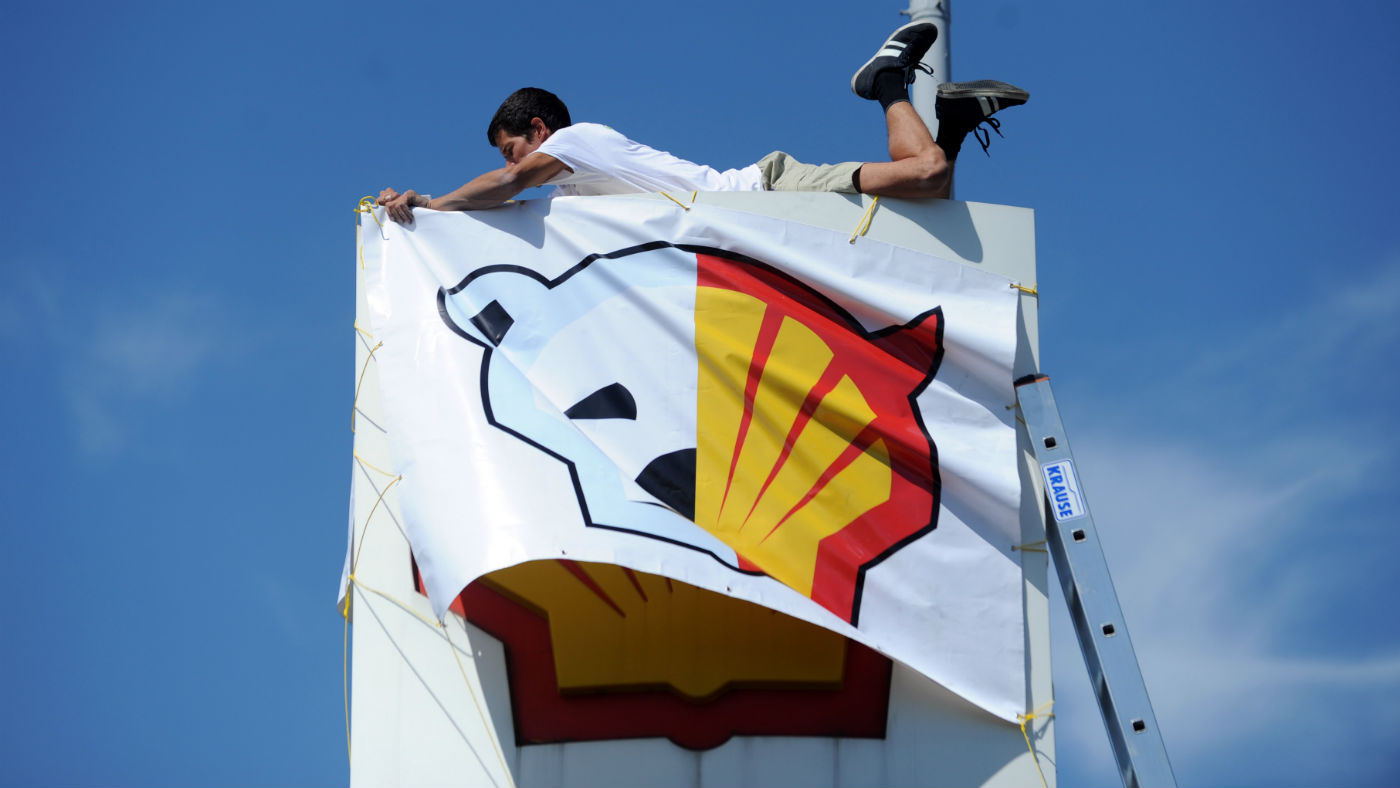Shell to link executive pay to carbon reduction
As World Bank announces extra $200bn investment to combat climate change

A free daily email with the biggest news stories of the day – and the best features from TheWeek.com
You are now subscribed
Your newsletter sign-up was successful
Royal Dutch Shell is to link executive pay with carbon emissions targets, following pressure from investors including the Church of England Pensions Board.
The energy giant aims to set three-to-five-year carbon footprint targets every year and has signed a joint statement with a group of 310 investors with more than $32 trillion (£25tn) of assets under management, dubbed Climate Action 100+.
The BBC says the firm “is still in talks with investors over the precise figures over carbon targets and what percentage of pay might be affected, but it is estimated that as many as 1,300 high-level employees could be affected”.
The Week
Escape your echo chamber. Get the facts behind the news, plus analysis from multiple perspectives.

Sign up for The Week's Free Newsletters
From our morning news briefing to a weekly Good News Newsletter, get the best of The Week delivered directly to your inbox.
From our morning news briefing to a weekly Good News Newsletter, get the best of The Week delivered directly to your inbox.
David Cumming of Aviva Investors told the broadcaster: “This is evidence of the growing power of what they call ESG - environmental, social and governance – investing”.
“Investors are increasingly concerned over environmental and social metrics like carbon emissions... and encouraging moves like the one seen today,” he said, adding other oil firms would be forced to follow Shell's example.
The Church of England under the Archbishop of Canterbury Justin Welby has led the way in pressuring companies it invests in to adopt a more ethical strategy – particularly in regards to fossil fuels.
Adam Matthews, director of ethics and engagement for the church’s pensions board, said the Shell move sets a benchmark for the rest of the oil and gas sector.
A free daily email with the biggest news stories of the day – and the best features from TheWeek.com
It comes as government representatives meet in Poland for a United Nations summit on climate change, which will lay out a “rule book” to implement the 2015 Paris climate accord.
In a bid to combat climate change, the World Bank also announced on Monday it is to make $200bn (£157bn) available to fund action from 2021-25 which will help countries adapt to the effects of warming and reduce greenhouse gas emissions.
Jim Yong Kim, the president of the World Bank, said the poorest and most vulnerable people were at the greatest risk, and urged other financial institutions to follow its lead.
The extra $200bn is double the amount available for the World Bank’s current five-year plan, and will include funding towards early-warning systems which is expected to help 250 million people in 30 developing countries prepare for extreme weather. Further funding will also go towards “smart agriculture” which will help protect food production in some of the world’s worst affect developing countries, reports The Guardian.
“We are pushing ourselves to do more and go faster on climate and we call on the global community to do the same,” Kim said. “This is about putting countries and communities in charge of building a safer, more climate-resilient future.”
-
 The Olympic timekeepers keeping the Games on track
The Olympic timekeepers keeping the Games on trackUnder the Radar Swiss watchmaking giant Omega has been at the finish line of every Olympic Games for nearly 100 years
-
 Will increasing tensions with Iran boil over into war?
Will increasing tensions with Iran boil over into war?Today’s Big Question President Donald Trump has recently been threatening the country
-
 Corruption: The spy sheikh and the president
Corruption: The spy sheikh and the presidentFeature Trump is at the center of another scandal
-
 The plan to wall off the ‘Doomsday’ glacier
The plan to wall off the ‘Doomsday’ glacierUnder the Radar Massive barrier could ‘slow the rate of ice loss’ from Thwaites Glacier, whose total collapse would have devastating consequences
-
 Can the UK take any more rain?
Can the UK take any more rain?Today’s Big Question An Atlantic jet stream is ‘stuck’ over British skies, leading to ‘biblical’ downpours and more than 40 consecutive days of rain in some areas
-
 As temperatures rise, US incomes fall
As temperatures rise, US incomes fallUnder the radar Elevated temperatures are capable of affecting the entire economy
-
 The world is entering an ‘era of water bankruptcy’
The world is entering an ‘era of water bankruptcy’The explainer Water might soon be more valuable than gold
-
 Climate change could lead to a reptile ‘sexpocalypse’
Climate change could lead to a reptile ‘sexpocalypse’Under the radar The gender gap has hit the animal kingdom
-
 The former largest iceberg is turning blue. It’s a bad sign.
The former largest iceberg is turning blue. It’s a bad sign.Under the radar It is quickly melting away
-
 How drones detected a deadly threat to Arctic whales
How drones detected a deadly threat to Arctic whalesUnder the radar Monitoring the sea in the air
-
 ‘Jumping genes’: how polar bears are rewiring their DNA to survive the warming Arctic
‘Jumping genes’: how polar bears are rewiring their DNA to survive the warming ArcticUnder the radar The species is adapting to warmer temperatures